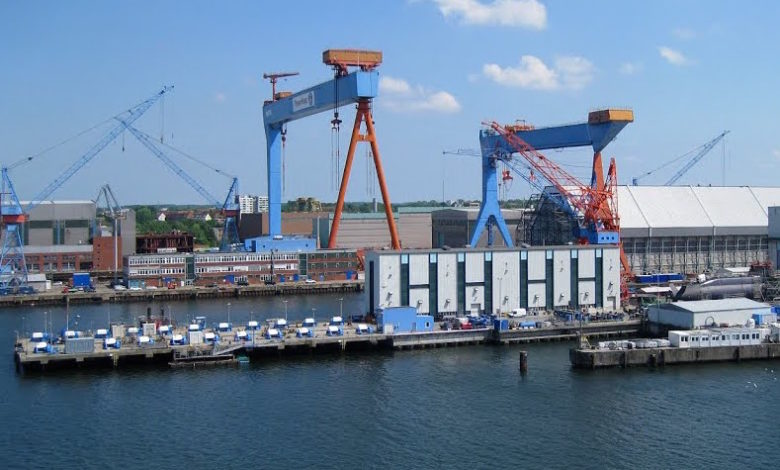
The current shipyard consolidation craze has spread to Germany with broadcaster NDR reporting the government is supportive of ThyssenKrupp Marine Systems, German Naval Yards Kiel and Lürssen merging into one group. Negotiations between the three parties have been ongoing since the start of the year, NDR revealed.
“Only a strong German player will be able to remain globally competitive and strengthen the German technology sector,” German Naval Yards Kiel CEO Jörg Herwig was quoted as saying in a recent statement.
Across the world big shipyard mergers are changing the market fundamentals of what used to be a very splintered industry.
China’s two main state-backed yard groups remerged late last year after operating separately since the start of the millennium. In South Korea, two of the nation’s largest yards, Hyundai Heavy Industries and Daewoo Shipbuilding & Marine Engineering, are in the process of merging while the two largest yards in neighbouring Japan have joined forces with Tokyo understood to be taking a look at taking the process a step further, integrating 15 shipbuilders into one group.

The days of huge tanker and offshore rig orders have all but evaporated. The success in renewable energy and the reemergence of nuclear energy will be the nail in the coffin in the course of the next 2 decades.
With the corona virus decimating the cruise industry those building cruise ship will not fare better.
There is however a more resilient product which shipyards can offer with the skills and knowledge it has acquired. That of building floating factories, cities fish, animal and vegetable farms. Yantai Shipyard in China did just that. They delivered a fish farm for the Norwegians. The Norwegians in turn are building semi submerged floating vehicle tunnels. The casting of these concrete structures, and the mooring in the fjords are challenges which shipyards are well equipped to meet.
With rising sea levels, coastal erosion, droughts and flood, naval architects can put their knowledge to offer solutions to food production. I shall be offering a paper on floating rice fields at the upcoming World Conference on Floating Solutions 2020 in Rotterdam in October.
Shipyards must innovate to